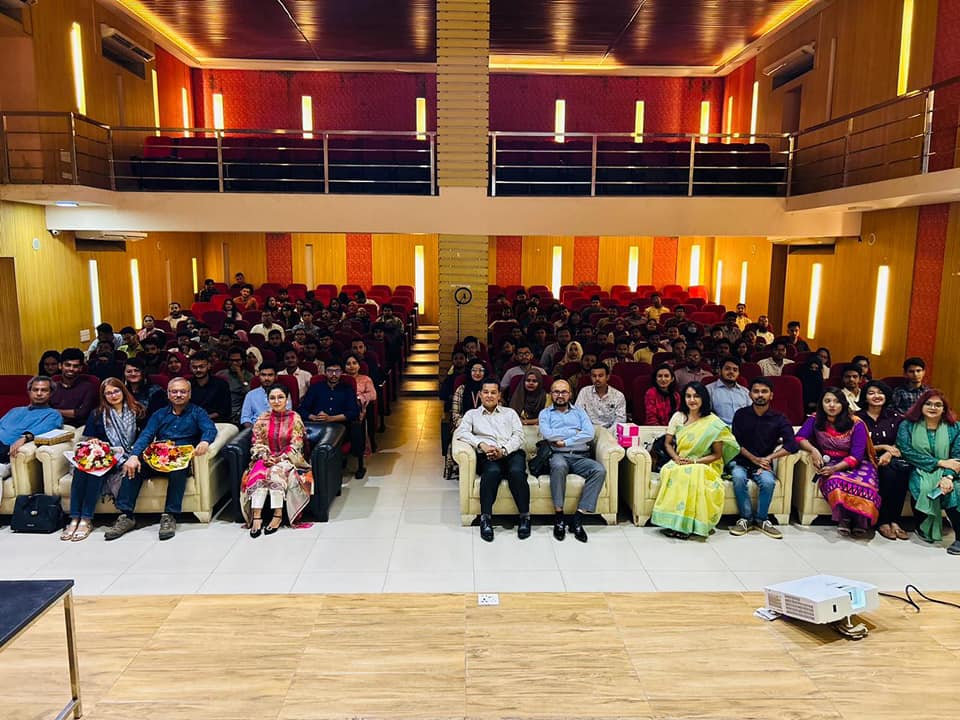On 4th May, Youth Policy Forum organized its first in-person Policy Masterclass in Chittagong on “Political Settlement and Economic Transformation” by Dr. Pallavi Roy. Dr. Roy is a Senior Fellow of YPF and an Associate Professor at SOAS University of London. Her research seeks to understand how institutional arrangements impact economic development and the role of political settlements in shaping these arrangements. Her countries of interest include South Asia (India, Pakistan, Bangladesh, and Nepal), Nigeria, and Indonesia.
After a brief presentation on the journey of YPF by Golam Mostafa Shuvo, the Chief Operating Officer of YPF, Dr. Pallavi Roy opened the masterclass by sharing her unique experience arriving at Chittagong. As a foreign citizen and visiting Chittagong for the first time, she witnessed the economic transformation that Bangladesh has been going through over the last couple of decades.
To illustrate the idea of political settlements, she drew the example of South Korea and Pakistan in the ’60s. Pakistan was then considered as the role model for economic growth, whereas South Korea lagged very far behind. Yet, not only South Korea’s growth later surpassed that of Pakistan’s, but South Korea has also been able to turn themselves into the poster child of export-led growth. The reason was very simple. Pakistan lacked proper institutions such as the rule of law which are critical for development and growth. This led to Pakistan’s stagnation and subsequent decline.
As she pointed out before, Bangladesh has achieved significant economic transformation through the remarkable progress made by their ready-made garments sector. The Government of Bangladesh had the capabilities and resources for the policy framework and stakeholders checking out each other for their own interest that eventually served the interest of the public. Here it is evident that the policy framework had a practical approach, and the policy design was smart for the success that it had achieved today.
After her captivating lecture, Professor Mushtaq Khan of SOAS University took the stage and chimed in with Dr. Roy’s lecture. He said Bangladesh is such a country which builds relationships by investing in trust and time. Thus, a mere contractual relationship i.e., stripping off relationships made through trust and rapport, will more possibly fail here. That’s the reason why rule by law is followed here, not rule of law. Because rule by law is applied selectively unlike rule of law which is applied equally. Professor Khan further explained the complexities behind understanding political settlement.
The event was a resounding success as numerous prominent academics, activists, and 150 enrolled students attended the masterclass. The academics like YPF Fellow Naomi Sharin, professor of AUW University, Dr. Nasrullah from University of Chittagong and others shared their experiences and insights on issues such as economic sustainability, and political activism. The audience was engaged throughout the event, asking thoughtful questions and participating in lively discussions.
The event was moderated by Sanjana Haq YPF organized this masterclass in cooperation with Young Economist Society (YES), Chittagong University Model United Nations Association (CUMUNA) and Chittagong University Research and Higher Study Society (CURHS), to give a tangible apprehension of how politics can help in economic transformation. Dr. Roy’s masterclass was just the beginning of what promises to be an exciting series of events organized by YPF. With its commitment to promoting knowledge-sharing and collaboration among experts in various fields, YPF is poised to make a significant contribution to Bangladesh’s upgrading agenda.
This piece is written by Nisha Barua, Lead of Law, Rights and Justice team at YPF.
